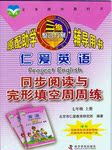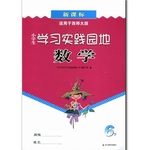
You’ve probably heard such reports. The number of college students majoring in the humanities (人文学科) is decreasing quickly. The news has caused a flood of high-minded essays criticizing the development as a symbol of American decline.
The bright side is this: The destruction of the humanities by the humanities is, finally, coming to an end. No more will literature, as part of an academic curriculum, put out the light of literature. No longer will the reading of, say, “King Lear” or D.H. Lawrence’s “Women in Love” result in the annoying stuff of multiple-choice quizzes, exam essays and homework assignments.
The discouraging fact is that for every college professor who made Shakespeare or Lawrence come alive for the lucky few, there were countless others who made the reading of literary masterpieces seem like two hours in the dentist’s chair.
The remarkably insignificant fact that, a half-century ago, 14% of the undergraduate population majored in the humanities (mostly in literature, but also in art, philosophy, history, classics and religion) as opposed to 7% today has given rise to serious reflections on the nature and purpose of an education in the liberal arts.
Such reflections always come to the same conclusion: We are told that the lack of a formal education, mostly in literature, leads to numerous harmful personal conditions, such as the inability to think critically, to write clearly, to be curious about other people and places, to engage with great literature after graduation, to recognize truth, beauty and goodness.
These serious anxieties are grand, admirably virtuous and virtuously admirable. They are also a mere fantasy.
The college teaching of literature is a relatively recent phenomenon. Literature did not even become part of the university curriculum until the end of the 19th century. Before that, what came to be called the humanities consisted of learning Greek and Latin, while the Bible was studied in church as the necessary other half of a full education. No one ever thought of teaching novels, stories, poems or plays in a formal course of study. They were part of the leisure of everyday life.
It was only after World War II that the study of literature as a type of wisdom, relevant to actual, contemporary life, put down widespread institutional roots. Soldiers returning home in 1945 longed to make sense of their lives after what they had witnessed and survived. The abundant economy afforded them the opportunity and the time to do so. Majoring in English hit its peak, yet it was this very popularity of literature in the university that spelled its doom, as the academicization of literary art was accelerated.
Literature changed my life long before I began to study it in college. Books took me far from myself into experiences that had nothing to do with my life, yet spoke to my life. But once in the college classroom, this precious, alternate life inside me got thrown back into that dimension of my existence that bored me. Homer, Chekhov and Yeats were reduced to right and wrong answers, clear-cut themes and clever interpretations. If there is anything to worry about, it should be the disappearance of what used to be an important part of every high-school education: the literature survey course, where books were not academically taught but thoroughly introduced—an experience unaffected by stupid commentary and useless testing.
The literary classics are places of quiet, useless stillness in a world that despises (鄙视) any activity that is not profitable or productive. Literature is too sacred to be taught. It needs only to be read.
Soon, if all goes well and literature at last disappears from the undergraduate curriculum—my fingers are crossed—increasing numbers of people will be able to say that reading the literary masterworks of the past outside the college classroom, simply in the course of living, was, in fact, their college classroom.
1.The author mentions “two hours in the dentist’s chair” in Paragraph 3 to indicate that _______.
A. the average literature class in college is two hours long
B. reading literary works is made unbearable by professors
C. it actually does not take long to read the classics of literature
D. college students don’t spend much time on literary masterworks
2.The sharp drop in the number of majors in the humanities _______.
A. has given rise to quite a shock in the intellectual world
B. promises the remarkable destruction of the humanities
C. shows more people read literature outside the classroom
D. has caused the author to reflect on the nature of literary creation
3.Which of the following opinions may the author hold?
A. The disappearance of literature should be strongly applauded.
B. Literature teaching can improve our critical thinking ability.
C. Reading literature doesn’t require specialized knowledge and skills.
D. Literature should be taught through analyzing different writing styles.
4.What is the author’s purpose in writing the passage?
A. To urge college students to read more literary classics.
B. To introduce the present situation of literature teaching.
C. To voice his opinion on the shrinkage of literature teaching.
D. To show his serious concern for college literature teaching.
 仁爱英语同步练习册系列答案
仁爱英语同步练习册系列答案 学习实践园地系列答案
学习实践园地系列答案科目:高中英语 来源:2017届天津市河北区高三总复习质量检测(二)英语试卷(解析版) 题型:单项填空
It was John who broke the window. Why are you talking to me as if I _______ it?
A. had done B. have done C. did D. am doing
查看答案和解析>>
科目:高中英语 来源:2016-2017学年山西省晋中市名校高二下学期期中联考英语试卷(解析版) 题型:短文填空
In order to know a foreign language thoroughly,four things are necessary.Firstly,we must understand the language when we hear it1.(speak). Secondly, we must be able to speak it2.(correct), with confidence and without hesitation.Thirdly, we must be able to read the language and fourthly, we must be able to write it.We must be able to make sentences3.are grammatically correct.
There is no easy way4.(get) succeed in language learning.A good memory is of great help, but it is not enough simply to memorize5.(rule) from a grammar book.It is not use6.(learn) by heart long lists of words and their7.(mean).studying the dictionary and so on.We must learn by using the language.If we are satisfied8.only a few rules we have memorized, we are not really learning the language. “Learn through use”9.(be) a good piece of advice for those who are studying10.new language.Practice is important.We must practice speaking and writing the language whenever we can.
查看答案和解析>>
科目:高中英语 来源:2017届湖南省衡阳市高三实验班第一次模拟考试英语试卷(解析版) 题型:书面表达
假定你是李华,你在上周日搭坐102号公交车,该公交车司机的不文明行为让乘客很愤怒。于是你向公交车公司写一封投诉信。要点如下:
1. 司机的不文明行为(大声讲话、紧急刹车、态度粗鲁等)。
2. 希望尽快查清此事。
注意:1. 词数100左右。2. 可以适当增加细节,以使行文连贯。
____________________________________________________________________________________________
____________________________________________________________________________________________
____________________________________________________________________________________________
____________________________________________________________________________________________
____________________________________________________________________________________________
____________________________________________________________________________________________
____________________________________________________________________________________________
__________________________________________________________________________
查看答案和解析>>
科目:高中英语 来源: 题型:阅读理解
查看答案和解析>>
科目:高中英语 来源: 题型:阅读理解
查看答案和解析>>
科目:高中英语 来源: 题型:填空题
查看答案和解析>>
科目:高中英语 来源: 题型:选择题
| A. | chance | B. | doubt | C. | possible | D. | likely |
查看答案和解析>>
湖北省互联网违法和不良信息举报平台 | 网上有害信息举报专区 | 电信诈骗举报专区 | 涉历史虚无主义有害信息举报专区 | 涉企侵权举报专区
违法和不良信息举报电话:027-86699610 举报邮箱:58377363@163.com